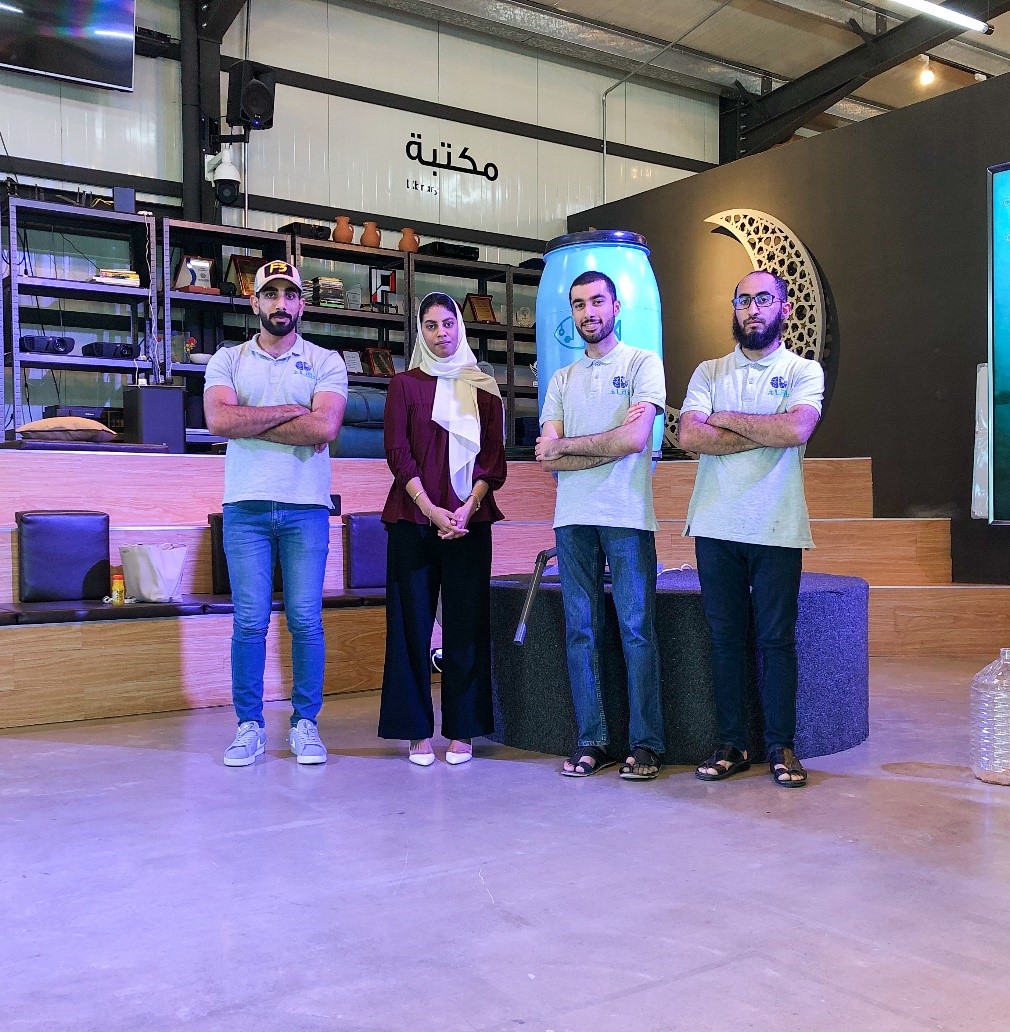iLab Marine
Making Oman a Marine Tech Hub
Waleed Al Maawali
The beginning of iLab Marine is still etched in my memory. In 2018, I joined The Research Council of Oman (TRC) as an Operation Engineer in environmental research that involves using advanced marine technologies. I was so passionate about autonomous marine vehicles that such a job was truly reflecting my dream career. The managers at TRC were fascinated about my previous research project, which was related to the detection of oil pollution using an automatic marine craft. I was perfectly suited to this job.
My new research team was small and dedicated, but we enjoyed every moment. The new career allowed us to delve deeper into marine technology research and water measurements. We were driven by the ambition of accelerating the pace of innovation, exploring the unexplored, and making a positive contribution to our nation. What an effort and sacrifice we have made in the project!
But then it happened.
Unfortunately, most research projects stay in the lab and never see the light of day. The managerial goals and structure of our department began to change - everything turned grey. The head of department resigned, some projects were asked to stop, and my colleagues and I were desperate. I wondered what our future might be. Would we abandon everything and just quit? Would we be asked to move to other departments to do a boring daily job? My ultimate dream was to see our efforts translate into reality. If no one would make that dream a reality, we would do it ourselves! That sparked the idea of iLab Marine.
The launch of iLab Marine came about when I met Ahmed Al Naabi and Ibrahim Al Jahwari. Ahmed had a manufacturing background while Ibrahim was from marketing and management. We all shared a vision of Oman being a centre for marine technology development and we pitched the idea to the Oman Technology Fund (OTF), which then invested in our business. This was a huge shift from research into the entrepreneurial mindset.

The path was not completely paved. Entrepreneurship is a huge commitment in terms of time and effort – much larger than a normal job. It involves a lot of sacrifice and it’s a 24/7 existence - that isn’t from everyone. One must be persistent, hardworking and be able to handle disappointment and failure. It can be grueling but also incredibly rewarding.
Our biggest barrier was the lack of business experience, but OTF helped us overcome this challenge by offering a funded training program in vital commercial skills. The training gave us the necessary practical experience as well as exposure to international entrepreneurs. It’s been incredibly supportive. We’ve also faced recruitment challenges, attracting and hiring the right skilled personnel. But that’s an issue we’ve fixed by being expressive about job requirements and more selective about who we bring on board.
We're now on the path of digitizing the aquaculture sector in Oman. Aquaculture is the new trend to ensure sustainable fish supply, but it's complex. To ensure sustainability and waste reduction, a scientific background and specific skill-set is needed, and most farmers don’t have that. By bridging the gap between expertise and technology, we hope to help farmers overcome these challenges.
.png)
Digitizing Agriculture
Digitizing aquaculture means: automating processes of feeding as well as collecting data, then using data analytics to reveal hidden patterns in farm performance and fish behaviour. We do that by providing an integrated feeding and measurement device with a data analytics mobile app.
The data we collect about feeding and water quality helps us adjust the feeding schedule and notify farmers when the fish is under stress (usually due to temperature increase/decrease or some accumulated pollution in the water). Stressed fish over time are vulnerable to fatality. In addition, farmers can track their farm performance using the app; i.e. they will know for sure whether they're profitable or not so they can adjust their budget, besides when to harvest and when to expand. The automation also helps aquaculture farmers adapt easily to the expansion of ponds.
An an example, our integrated solution helped the Aquaculture Center in Oman to cut feeding waste by about 18% compared to manual feeding and maintain cleaner ponds (ponds need to be cleaned frequently which is exhaustive and time-consuming, but now, due to low waste, they need to be cleaned every three weeks instead of two weeks). Our solution helped to detect two cases where the fish was under extreme stress that could otherwise lead to mortality.
Our grand plan is to digitize the GCC’s fisheries sector – we want to take our know-how region wide. We’re considering the possibility of opening international offices, helping us get closer to clients. We’re also looking to develop a more culturally diverse team, folk with marine and environmental science backgrounds as well as software developers. At the end of the day, we’re looking to make Oman a marine tech hub.
To find out more, please visit our website